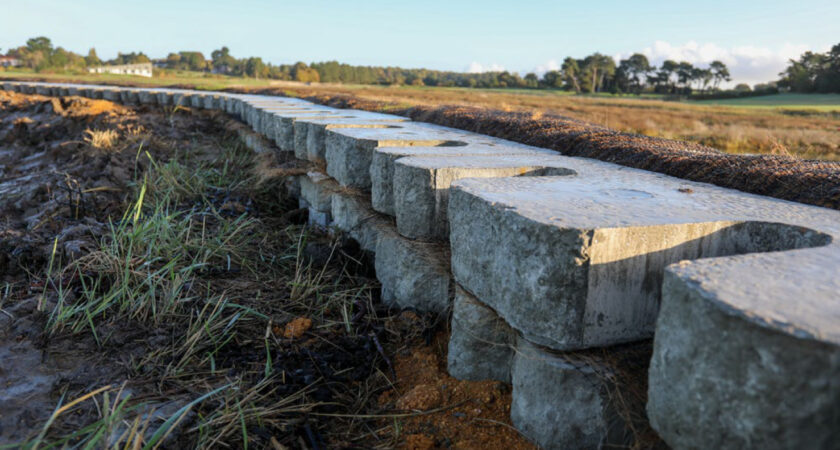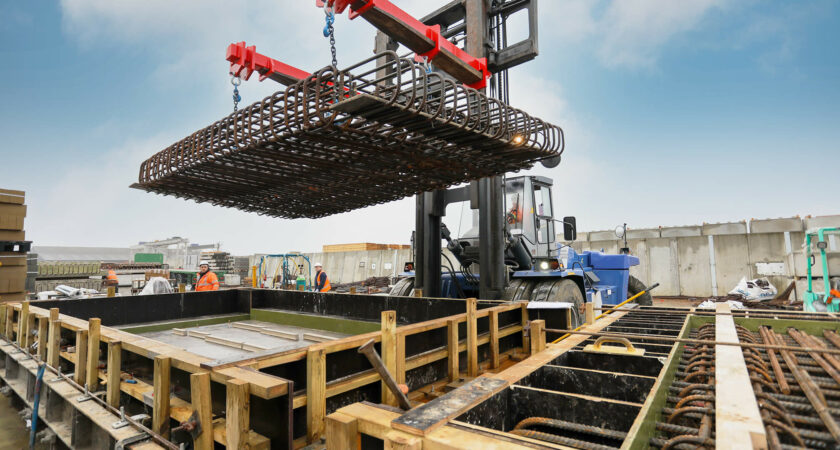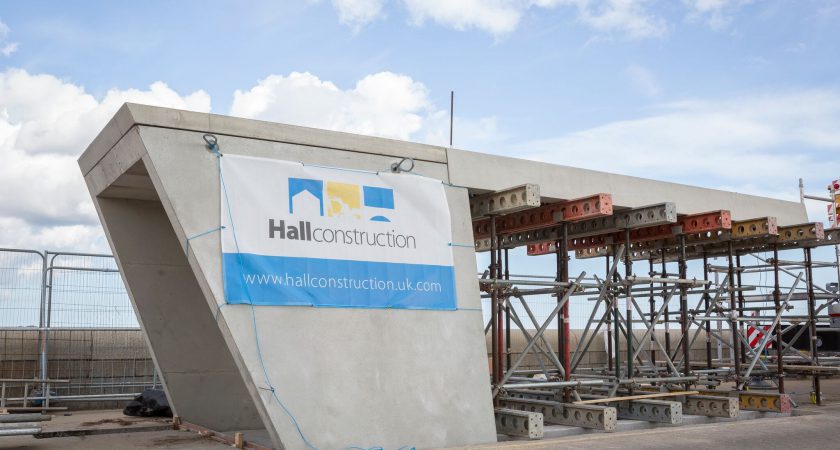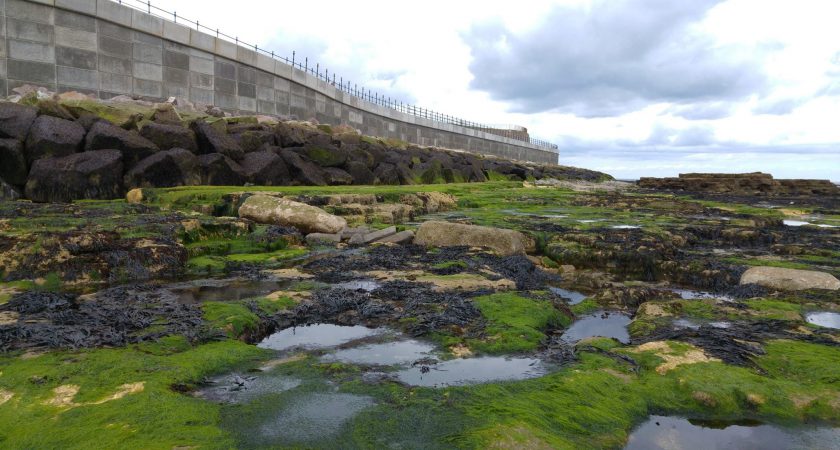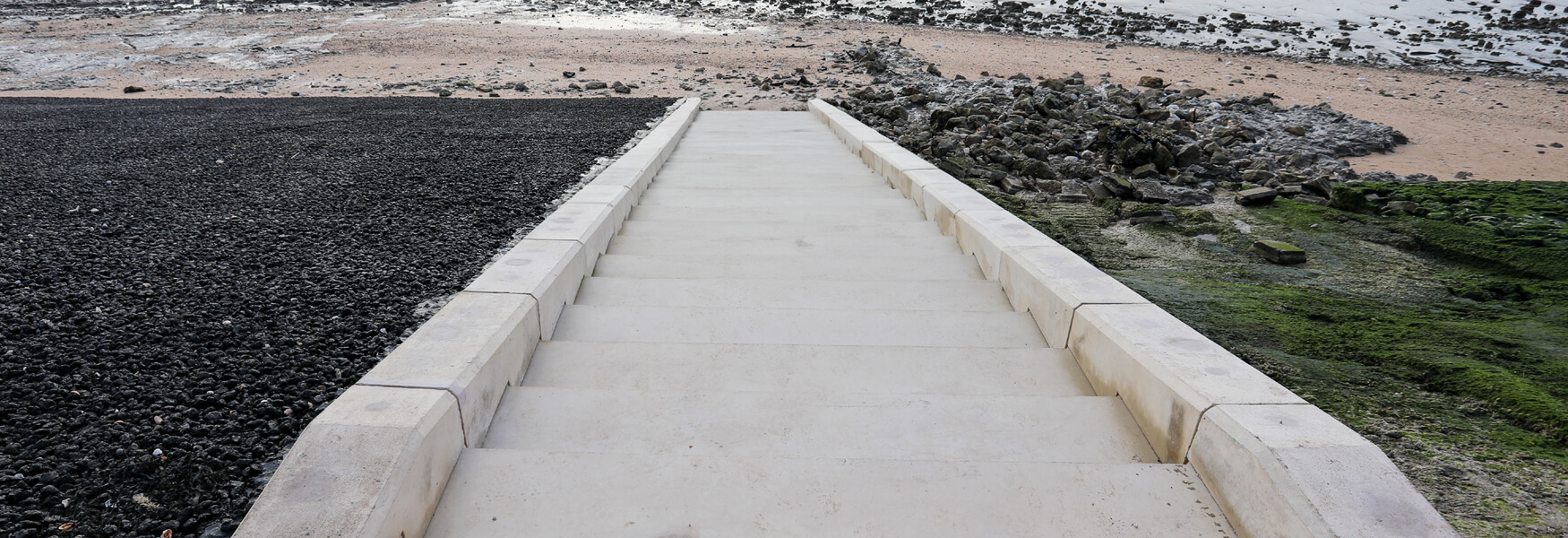
Canvey Island Southern Shoreline Revetment Project
The Canvey Island Southern Shoreline project will renew and improve the erosion protection on the seaward face of the tidal defences, over a 3km stretch between Thorney Bay and to the north of Leigh Beck pumping station. We provided over 1,000 individually reinforced low-carbon precast concrete steps which were manufactured in steel moulds.
Get in touch Download Case Study PDFThis project will better protect the Island’s tidal defences against erosion and rising sea levels due to climate change, and extend its useful life to 2070. These works extend the high standard of tidal flood risk protection provided by the Canvey Island tidal defences into the future, a key aspiration of the Thames Estuary 2100 Plan. The project is investing up to £75M of government funding over 2.5 years to deliver this scheme and is the single largest investment in Canvey Island’s tidal defences since they were raised in the early 1980s.
Contractors: Balfour Beatty, Jacobs & JCoffey

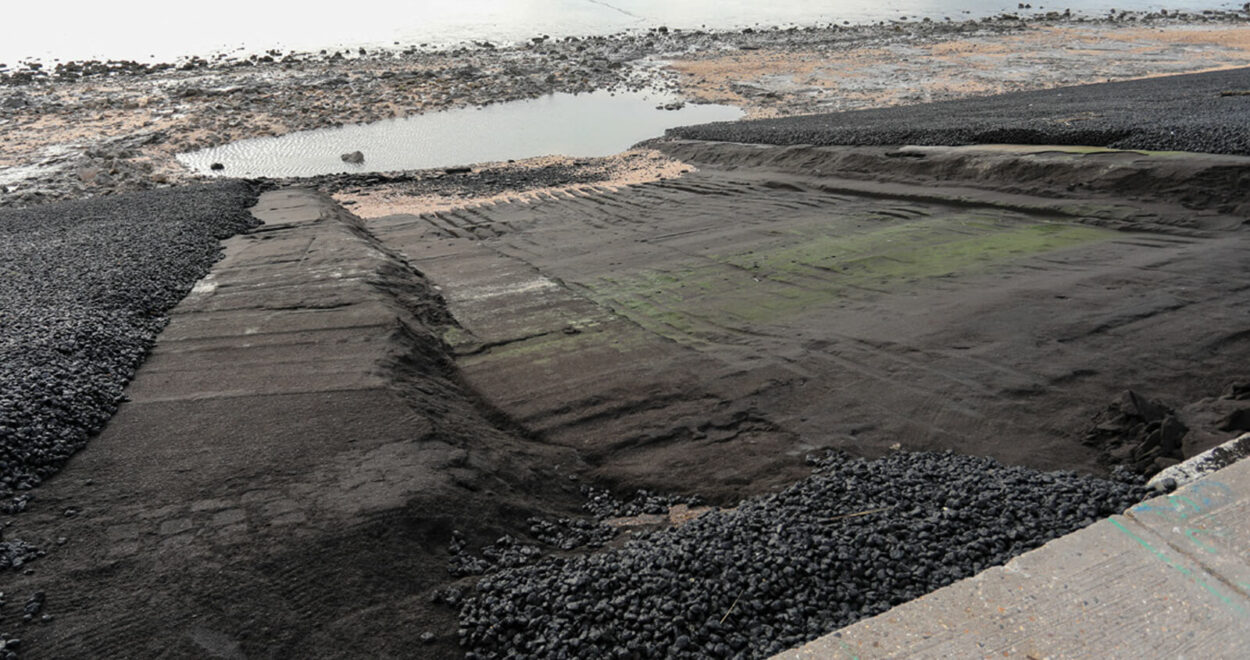
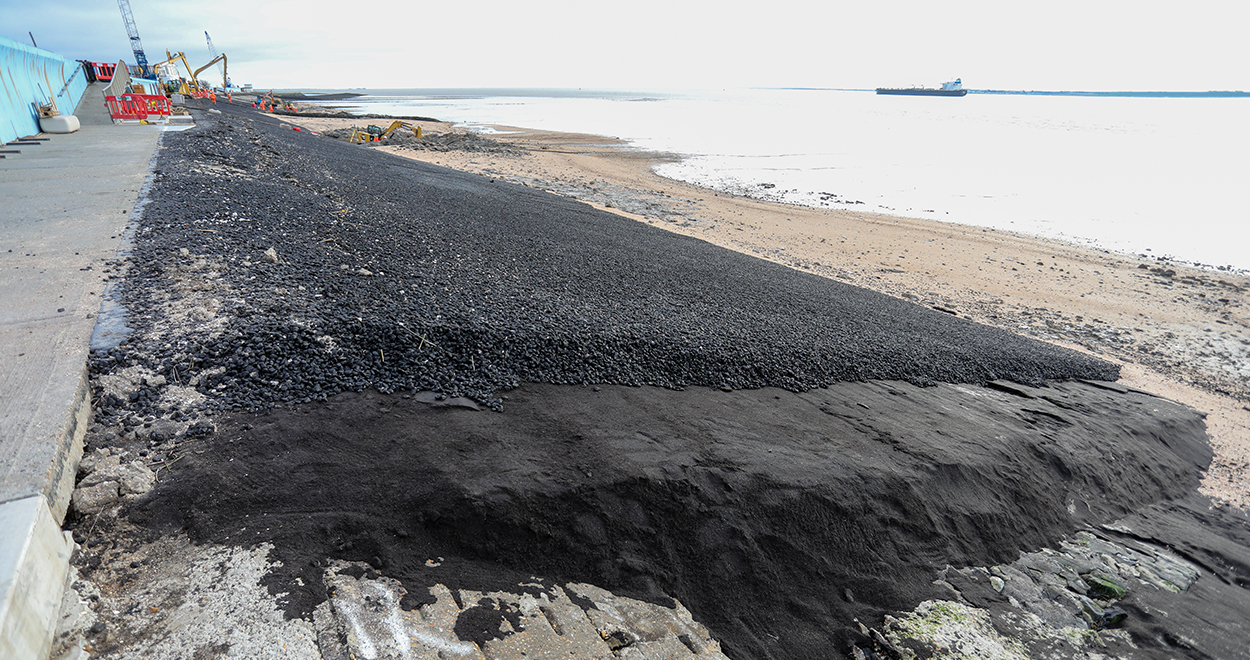
Background
Canvey Island is very low lying with ground levels nearly two metres below the daily high tide level in the Thames estuary. The island, therefore, is at risk of tidal flooding, which could affect more than 15,000 homes on the island.
The current revetment, some of which dates back to the 1930’s, is constructed from a range of different materials, ranging from concrete blocks to ragstone, interrupted by multiple joints which have been susceptible to erosion.
The new revetment will be made of Open Stone Asphalt (OSA), laid as a continuous surface, with no joints, which will reduce the risk of erosion and prevent material being lost from beneath the revetment. It will be laid at a shallower angle than the previous revetment, and therefore new steps leading to the foreshore needed to be created.
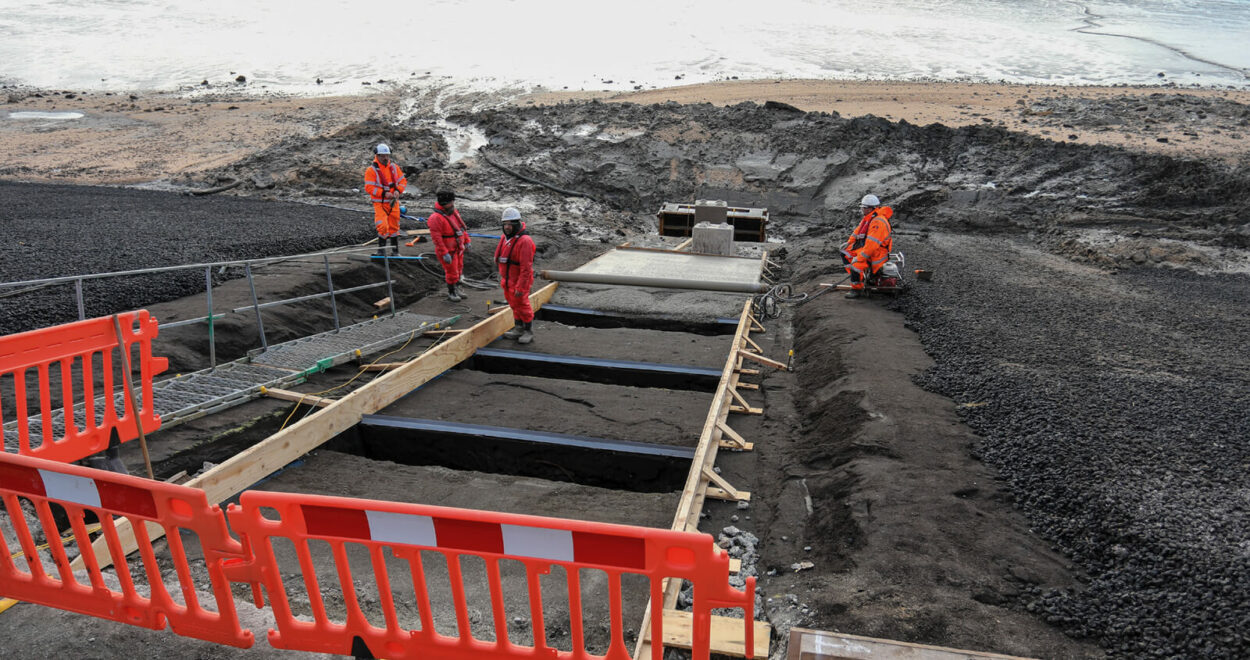
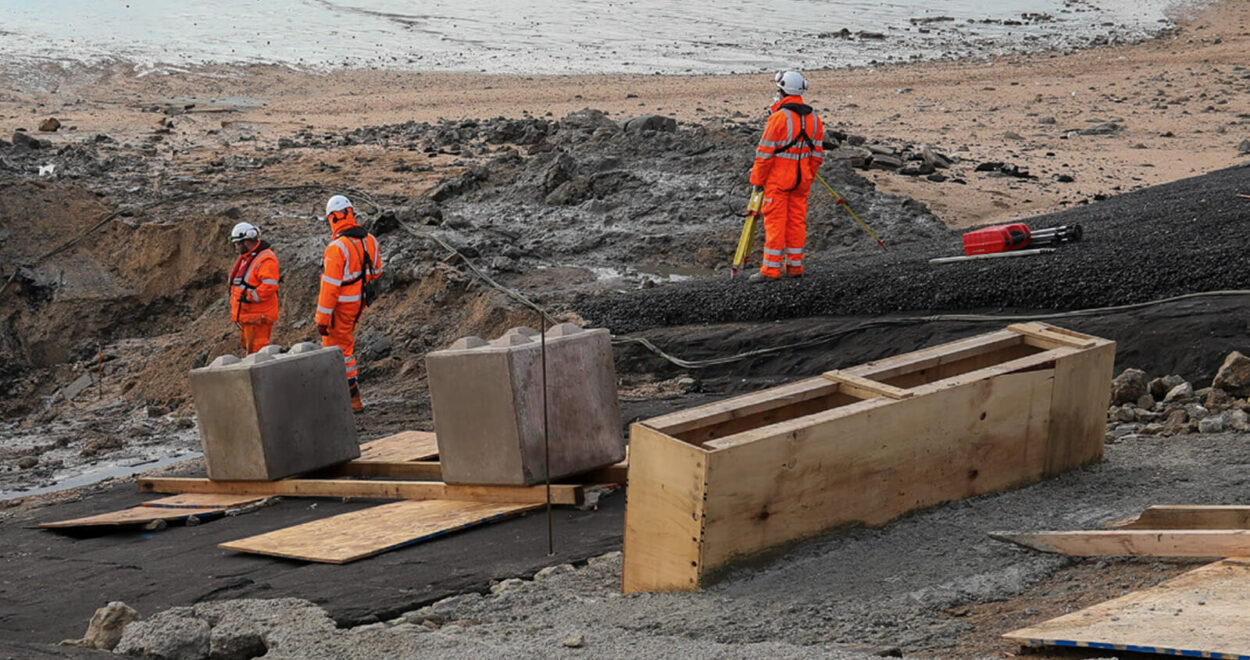
Solution
The project required stepped access to the foreshore at 17 locations along a 3km stretch from Thorney Bay in the west to the Island Yacht Club in the east.
Work to the revetment could only be undertaken during low tide, which lasts approximately 5 hours a day. The project team wanted to reduce the construction programme, as well as minimise the risk of health and safety and environmental incidents that could occur due to working in a tidal marine environment.
Off-site prefabrication of low-carbon reinforced precast concrete steps was proposed, which significantly reduced the duration of on-site construction works.
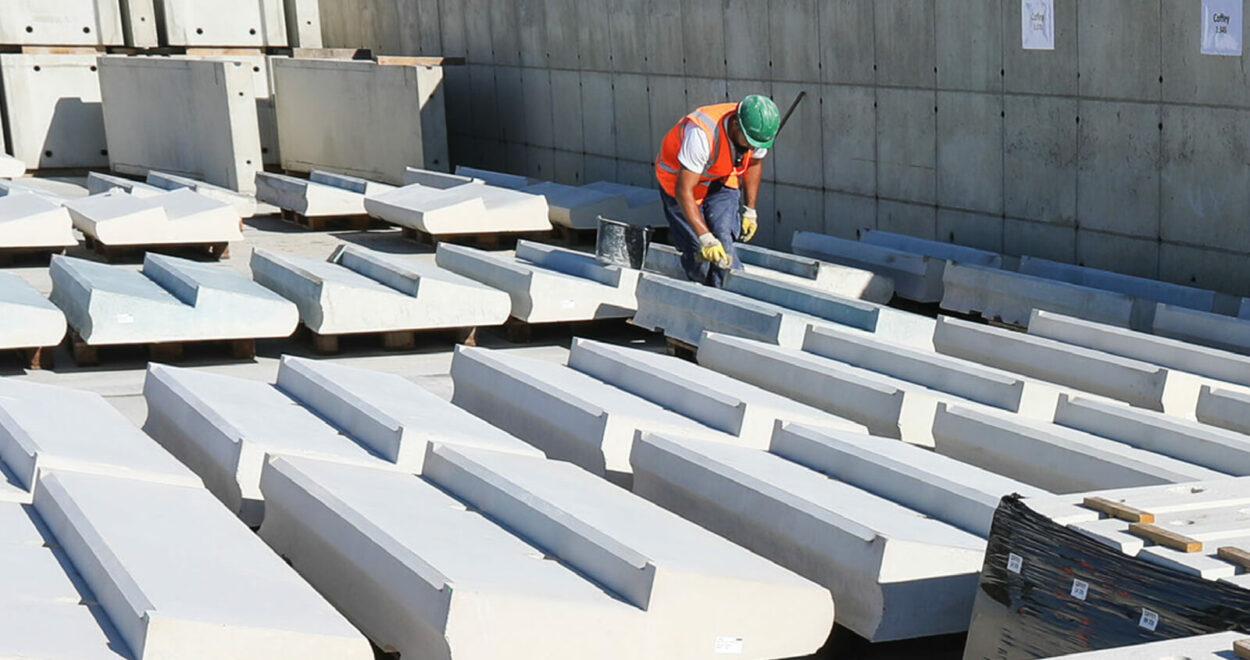
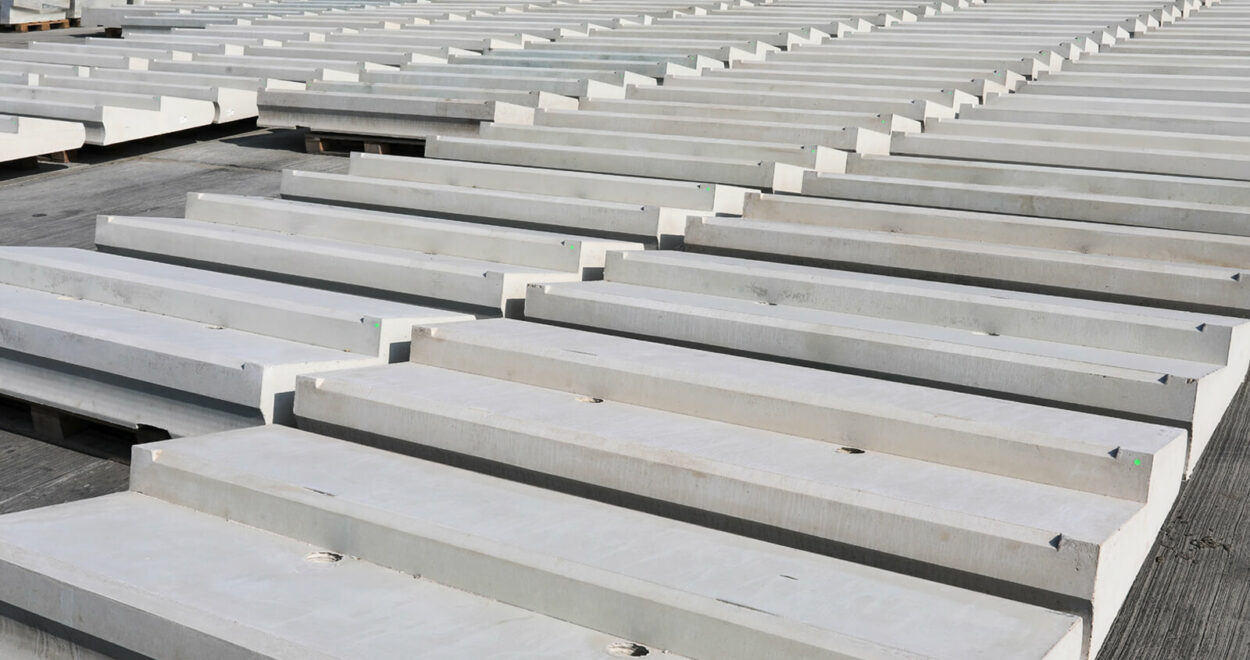
How we helped?
We provided over 1,000 individually reinforced low-carbon precast concrete steps which were manufactured in steel moulds. The units were made using approximately 235m3 of Cemfree Rapid from DB Group Ltd, an alkali-activated cementitious material (AACM) which has 85% lower embodied carbon than 100% OPC (Ordinary Portland Cement) concrete.
Cemfree Rapid is well suited to precast concrete applications. A C40/50 concrete was specified, and with a demoulding requirement of 15N being required in 24 hours, levels of 15N to 20N were routinely achieved.
With a minimum 28-day strength requirement of 50N, this has been consistently achieved with up to 70N on a few occasions.
The steps were also reinforced with Basalt Fibre Reinforced Polymer (BFRP) reinforcement bars instead of steel reinforcement. The Bastech FRP bar is 4.5 times lighter than steel and all cages could be transported pre-assembled on a single lightweight lorry to the manufacturing site which also reduced the carbon footprint. Basalt reinforcement reduces the carbon footprint by around 60% compared with using steel reinforcement. Combined with the savings achieved by using Cemfree Rapid, the units’ overall embodied carbon was reduced by approximately 80% compared with conventional steel and concrete.
The off-site production of the stairs significantly reduced the duration of on-site construction, which was an essential factor in operating within a 5 hour low-tide window.
Installation of the precast steps commenced in the second half of 2023 and were secured in place by stainless steel dowels and grouting. The project is anticipated to take two and a half years to complete overall (target date summer 2025), but it will be completed in phases to minimise disruption to the community and the tourism industry on the island.
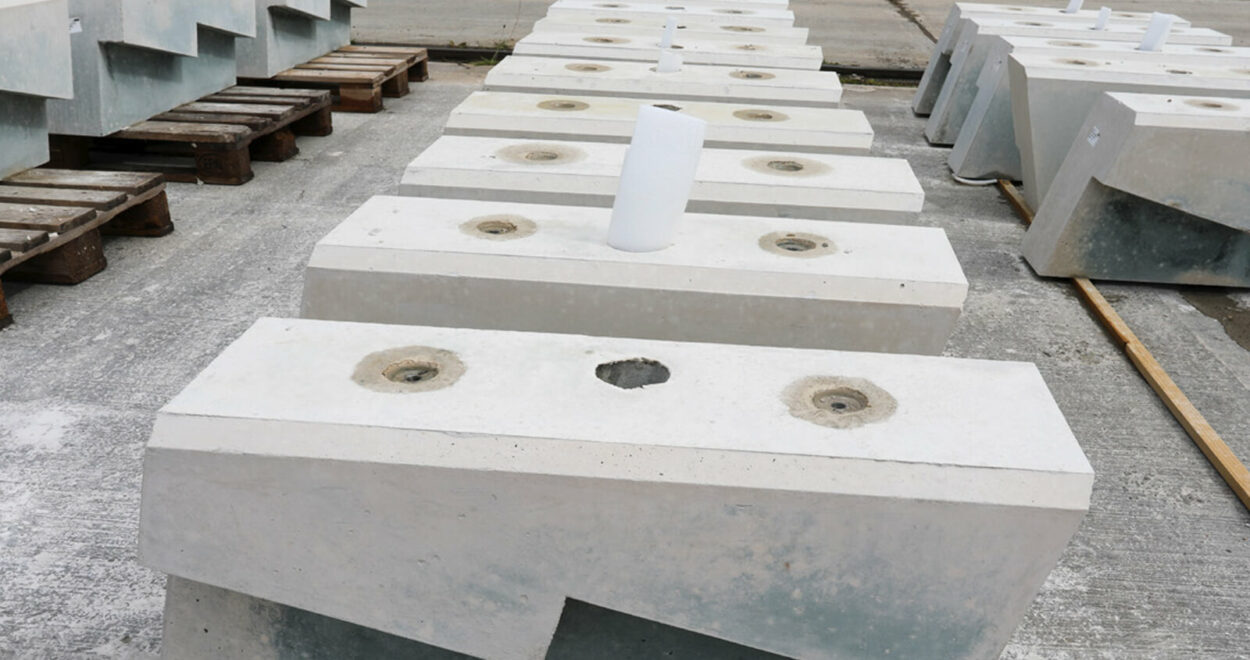
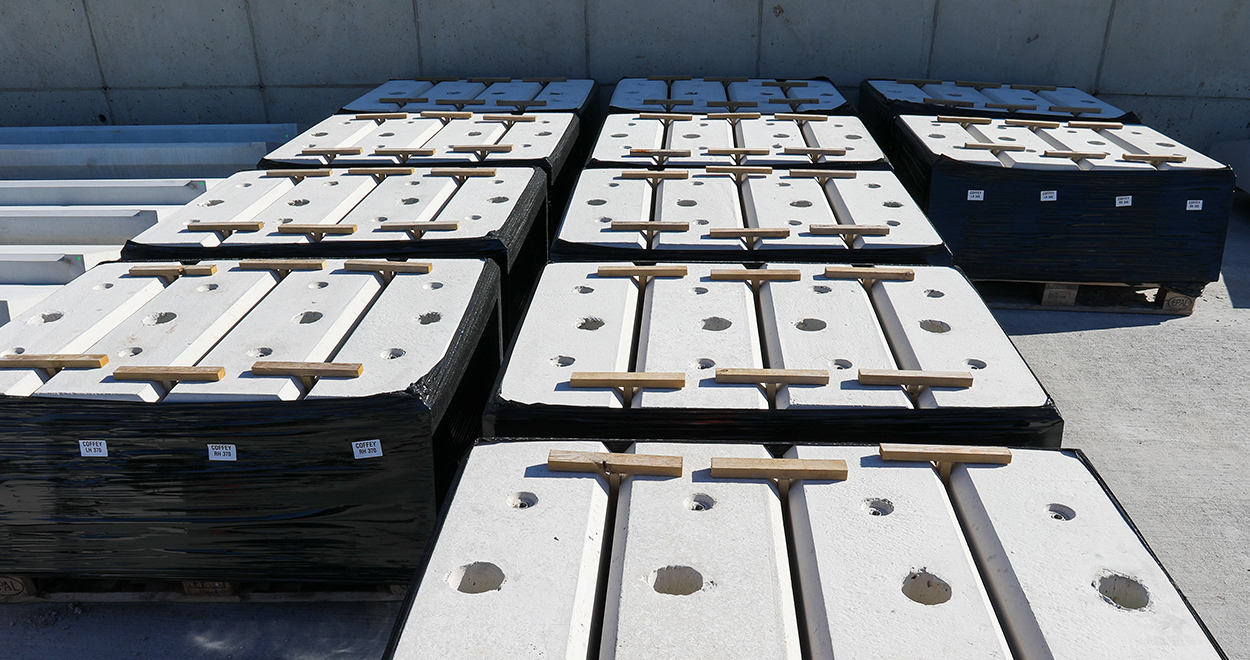
Get in touch with our bespoke concrete department
Our experienced sales team is always on hand to help and advise you on the features and benefits of all of our bespoke concrete products. We would be more than happy to help you discuss the wide variety of options on offer.
Get in touch